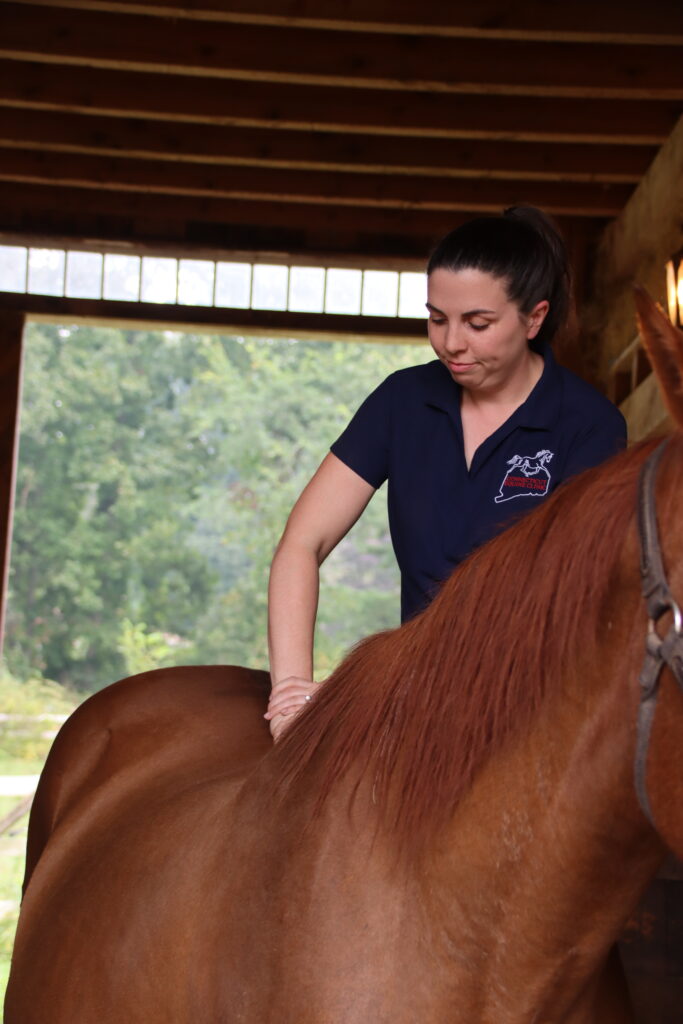Veterinary Medical Manipulation
Veterinary Medical Manipulation
Dr. Williamson and Dr. Parisio-Wood are happy to offer veterinary medical manipulation for our clients. Veterinary Medical Manipulation (VMM) for horses, also commonly referred to as equine chiropractic care or animal chiropractic care, is a specialized and holistic approach to addressing musculoskeletal issues and promoting overall well-being in horses. This form of therapy is performed by licensed and trained veterinary practitioners. Here's a description of Veterinary Medical Manipulation for horses:
The VMM practitioner begins by conducting a thorough evaluation of the horse's overall health and musculoskeletal system. They may review the horse's medical history, observe its gait, posture, and movement, and palpate various areas to identify areas of tension, restriction, or misalignment.
Using their hands, the veterinarian performs a manual examination of the horse's spine, joints, muscles, and soft tissues. They look for signs of restrictions, muscle tension, and any areas of discomfort or pain.
Based on the assessment findings, the practitioner develops a personalized treatment plan. This plan outlines specific adjustments and manipulations needed to address the horse's musculoskeletal issues. The treatment plan may also include recommendations for follow-up sessions or additional therapies.
During a VMM session, the veterinarian uses precise, controlled manual techniques to perform chiropractic adjustments. These adjustments involve applying gentle and targeted pressure with high velocity and low amplitude. The goal is to restore proper alignment, improve joint mobility, and relieve tension in musclesand ligaments.
Veterinary Medical Manipulation aims to alleviate pain and discomfort while enhancing the horse's overall function. It can help address a range of issues, including back pain, neck pain, lameness, stiffness, and reduced performance. By restoring proper alignment and function, VMM may contribute to improved range of motion and flexibility.
In addition to treating existing issues, VMM can also be used as a preventative measure to maintain musculoskeletal health in horses, particularly those engaged in strenuous activities like racing, jumping, or competitive riding. Regular check-ups with a VMM practitioner can help detect and address minor issues before they become major problems.
Equine chiropractors provide education to horse owners about proper care, exercise, and nutrition to support the horse's musculoskeletal health between sessions.

Veterinary Medical Manipulation is a non-invasive and complementary therapy that aims to optimize the health and performance of horses.
For the best equine veterinary clinic in the region, contact Connecticut Equine Clinic at (860) 742-1580.
Contact Us